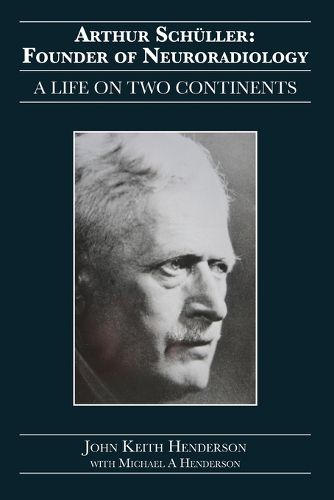Readings Newsletter
Become a Readings Member to make your shopping experience even easier.
Sign in or sign up for free!
You’re not far away from qualifying for FREE standard shipping within Australia
You’ve qualified for FREE standard shipping within Australia
The cart is loading…






Professor Arthur Schuller (1874 1957) was a distinguished pioneer in the field of neuroradiology. His research rapidly made him the pre-eminent authority on the radiology of the skull and brain in the German-speaking world, particularly after the publication of his two books, including a monograph on diseases of the head, which became the standard textbook then and during the whole classic era of neuroradiology. He was a university professor at the age of 35, author of many scientific articles in medical journals, and is credited with the first description of three diseases and three operations. Schuller was also a refugee
fleeing Austria with his wife in 1938 and settling in Melbourne in 1939. The analysis of his career is woven into the personal history of his family. Tragically, his later years were darkened by the news from Europe that his two sons had perished in a concentration camp.
$9.00 standard shipping within Australia
FREE standard shipping within Australia for orders over $100.00
Express & International shipping calculated at checkout
Professor Arthur Schuller (1874 1957) was a distinguished pioneer in the field of neuroradiology. His research rapidly made him the pre-eminent authority on the radiology of the skull and brain in the German-speaking world, particularly after the publication of his two books, including a monograph on diseases of the head, which became the standard textbook then and during the whole classic era of neuroradiology. He was a university professor at the age of 35, author of many scientific articles in medical journals, and is credited with the first description of three diseases and three operations. Schuller was also a refugee
fleeing Austria with his wife in 1938 and settling in Melbourne in 1939. The analysis of his career is woven into the personal history of his family. Tragically, his later years were darkened by the news from Europe that his two sons had perished in a concentration camp.